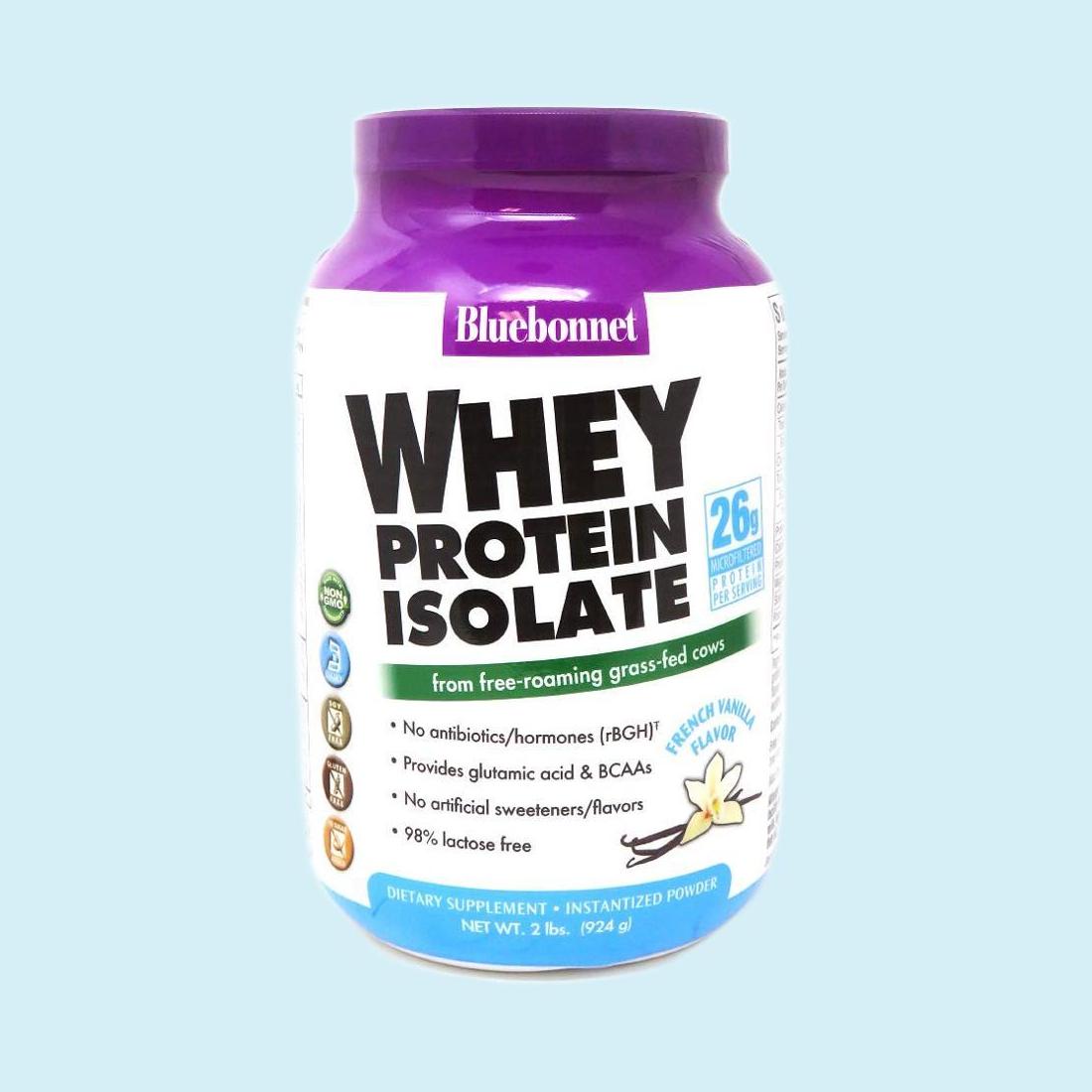How to Spot and Avoid Low-Quality Protein Powders: A Comprehensive Guide for Protein Powder Buyers
Protein powders have become increasingly popular among health-conscious individuals, fitness enthusiasts, and athletes. They offer a convenient and efficient way to supplement one’s protein intake, especially for those with active lifestyles or specific dietary needs. However, not all protein powders are created equal. With the market flooded with various options, it can be challenging to differentiate between high-quality and low-quality protein powders.
In this guide, we will explore how to spot and avoid low-quality protein powders, empowering you to make informed decisions when purchasing protein powder. By understanding the key factors that contribute to protein powder quality and identifying common red flags, you can ensure that you are investing in a product that supports your health and fitness goals.
Product Spotlight
Aggregate Rating
Our Rating
Whey Protein Isolate offers a high-quality protein source for fitness enthusiasts. It contains 26 grams of protein per serving, is sourced from grass-fed cows, and is free from artificial flavors and sweeteners.
Understanding Protein Powder Quality
To determine the quality of a protein powder, it is essential to consider several factors. These include the protein source, processing methods, ingredient transparency, and third-party testing and certification. Let’s delve into each of these aspects:
-
Protein Source: The source of protein in a powder plays a crucial role in its quality. Common protein sources include whey, casein, and plant-based proteins such as soy, pea, and hemp. Each protein source has its unique benefits and considerations. For example, whey protein is known for its high bioavailability and complete amino acid profile, making it a popular choice among athletes. On the other hand, plant-based proteins are suitable for vegans, vegetarians, or individuals with lactose intolerance.
-
Processing Methods: Protein powders undergo various processing methods, such as isolation, concentration, and hydrolyzation. These methods affect the purity, bioavailability, and digestibility of the protein. For instance, whey protein isolate undergoes further filtration to remove lactose, fat, and carbohydrates, resulting in a higher protein content per serving. Understanding the different processing methods can help you choose a protein powder that aligns with your specific needs and preferences.
-
Ingredient Transparency: A high-quality protein powder should provide transparency regarding its ingredients and sourcing. Look for products that clearly list all the ingredients used, without any hidden fillers, additives, or artificial sweeteners. Transparency is essential to ensure that you are consuming a product that is free from potentially harmful substances and meets your dietary requirements.
-
Third-Party Testing and Certification: Reputable protein powder brands often undergo third-party testing and certification to validate their product’s quality, purity, and safety. Look for certifications from trusted organizations such as NSF or Informed-Choice, which ensure that the product has been tested for banned substances and meets strict quality standards.
Identifying Red Flags
When evaluating protein powders, it is crucial to be aware of common red flags that may indicate low-quality products. By recognizing these indicators, you can avoid wasting your money on ineffective or potentially harmful protein powders. Here are some red flags to watch out for:
-
Excessive Fillers, Additives, and Artificial Sweeteners: Low-quality protein powders often contain excessive fillers, additives, and artificial sweeteners to enhance taste, texture, or shelf life. These ingredients can undermine the nutritional value of the product and may have adverse effects on your health. Opt for protein powders with minimal additives and natural sweeteners.
-
Lack of Transparency Regarding Ingredients and Sourcing: Some protein powders may lack transparency when it comes to disclosing their ingredients and sourcing practices. If a brand fails to provide detailed information about their product, it raises concerns about their commitment to quality and consumer trust. Choose protein powders from brands that prioritize transparency and openly share information about their sourcing and manufacturing processes.
-
Poor Taste, Texture, or Mixability: While taste is subjective, low-quality protein powders often have an unpleasant taste, gritty texture, or difficulty in mixing. These issues can make it challenging to incorporate the protein powder into your daily routine. Reading reviews and seeking recommendations can help you identify protein powders that are known for their palatability and ease of use.
-
Suspiciously Low Price Points: If a protein powder’s price seems too good to be true, it likely is. Low-quality products are often priced significantly lower than their higher-quality counterparts. This may be due to the use of inferior ingredients, lack of testing, or subpar manufacturing processes. Invest in a protein powder that aligns with your budget while ensuring that it meets the necessary quality standards.
Key Considerations When Buying Protein Powder
When buying protein powder, it is important to consider several key factors to ensure that you are selecting a product that suits your needs and preferences. Here is a checklist of factors to consider:
-
Protein Source: Determine the protein source that aligns with your dietary needs and preferences. Consider factors such as taste, digestibility, and allergenic potential.
-
Processing Methods: Understand the different processing methods and their impact on the protein’s purity, bioavailability, and digestibility. Choose a processing method that suits your requirements.
-
Ingredient List: Read the ingredient list carefully to ensure that the protein powder contains minimal additives, artificial sweeteners, or potentially harmful substances. Look for natural sweeteners and recognizable ingredients.
-
Certification and Testing: Look for protein powders that have undergone third-party testing and certification from reputable organizations. Certifications such as NSF or Informed-Choice provide assurance of quality and safety.
-
Personal Dietary Preferences and Restrictions: Consider any dietary preferences or restrictions you may have, such as being vegan, vegetarian, or lactose intolerant. Choose a protein powder that aligns with your specific dietary needs.
Tips for Avoiding Low-Quality Protein Powders
To avoid falling for marketing gimmicks and making an ill-informed purchase, here are some practical tips:
-
Research Brands: Take the time to research different protein powder brands. Look for reputable brands with a track record of producing high-quality products. Read customer reviews and testimonials to gauge the brand’s reputation.
-
Read Reviews: Reading reviews from other consumers can provide valuable insights into the taste, mixability, and overall quality of a protein powder. Look for reviews from trusted sources or online communities dedicated to health and fitness.
-
Seek Recommendations: Reach out to trusted health professionals, nutritionists, or fitness experts for recommendations on protein powder brands that align with your goals and dietary preferences. Their expertise can help guide you towards reliable options.
-
Consult with a Health Professional: If you have specific dietary concerns or health conditions, it is always advisable to consult with a healthcare professional or registered dietitian. They can provide personalized recommendations based on your unique needs.
In conclusion, choosing a high-quality protein powder is essential for supporting your health and fitness goals. By understanding the factors that contribute to protein powder quality, identifying red flags, and considering key factors when making a purchase, you can avoid low-quality products and make informed decisions. Remember to research brands, read reviews, and seek recommendations from trusted sources. With these strategies in mind, you can confidently select a protein powder that enhances your overall well-being.
References:
- Precision Nutrition - All About Protein Powders
- Healthline - Whey Protein Isolate: A Detailed Review
- Healthline - The 7 Best Types of Protein Powder
- National Strength and Conditioning Association - Protein Supplements: What You Need to Know
- International Society of Sports Nutrition - Position Stand: Protein and Exercise

